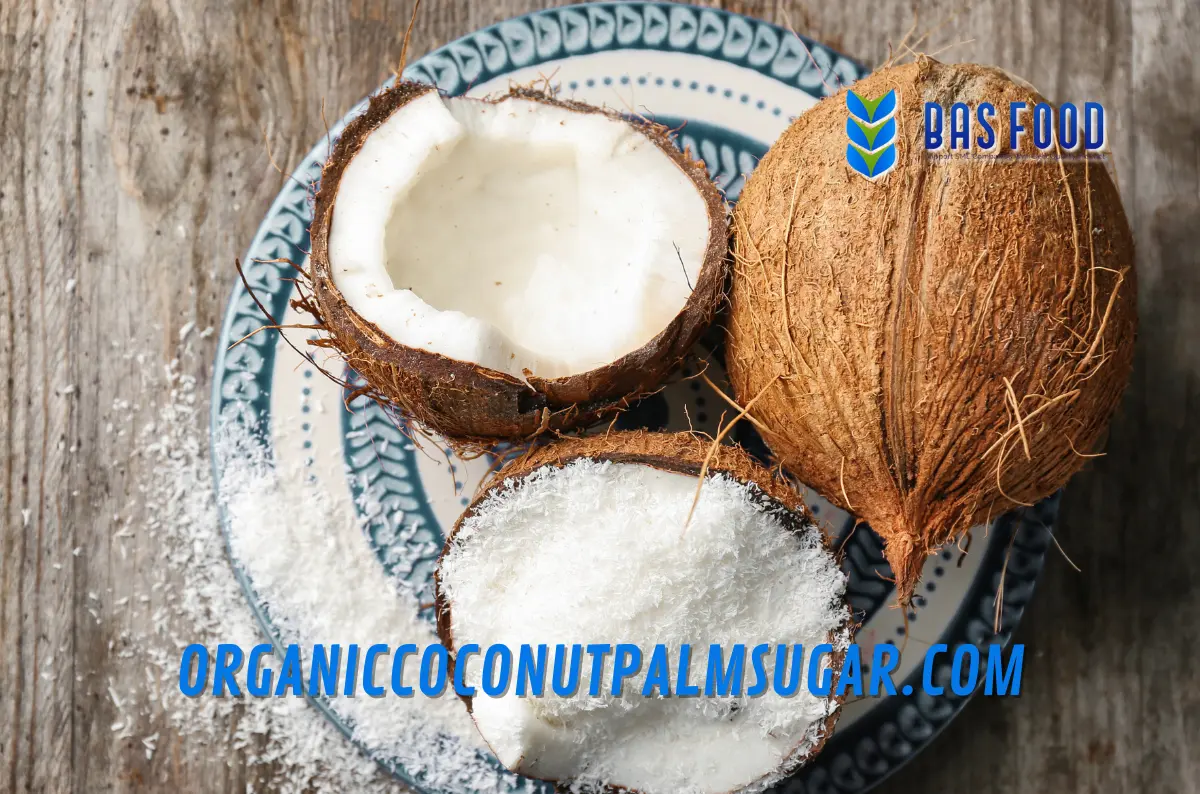Desiccated coconut has become one of the most versatile ingredients in the modern global food industry. From premium chocolates in Europe to tropical pastries in Asia, this fine, dried coconut product finds its way into kitchens, factories, and bakeries worldwide. Its naturally sweet aroma, rich texture, and nutritional value make it a sought-after choice across multiple food categories. Explore the various desiccated coconut uses that make this ingredient so popular.
The growing demand for plant-based and clean-label ingredients has only increased the importance of desiccated coconut uses. Beyond traditional recipes, food manufacturers now see it as an essential raw material for everything from coconut-based snacks to dairy alternatives and functional foods. Indonesia is one of the world’s top coconut producers. It plays a vital role in supplying high-quality, export-grade desiccated coconut to meet these global demands.
At the heart of this thriving trade stands CV Bonafide Anugerah Sentosa, a trusted Indonesian supplier and producer of coconut, spices, fishery, and coffee products known for quality, consistency, and sustainability.

A Look at What Makes Desiccated Coconut So Valuable
Natural Flavor and Texture for Food Innovation
One of the key reasons desiccated coconut has gained global popularity lies in its authentic tropical taste and fine, fibrous texture. It enhances both the flavor and the mouthfeel of food products without artificial additives or synthetic ingredients.
Food manufacturers appreciate its balance between natural sweetness and subtle creaminess, allowing it to blend seamlessly with chocolate, dairy, fruit, or flour-based products. Whether used as a filler, topping, or base ingredient, desiccated coconut uses continue to expand in both artisanal and industrial production.
Shelf-Stable and Easy to Handle
Unlike fresh coconut, desiccated coconut has an extended shelf life. Its low moisture content (under 3%) ensures that it remains stable. It is lightweight and resistant to spoilage. This makes it ideal for food manufacturing coconut operations that require efficiency and long storage capabilities.
The convenience of transport and handling has made it an essential commodity in the global supply chain — from food processors to small-scale confectioners.
Desiccated Coconut in Bakery and Confectionery Applications
A Staple Ingredient for Bakers
When it comes to F&B ingredients, desiccated coconut holds a top spot in the bakery sector. It adds a unique texture and aroma to cakes, cookies, muffins, and bread. In Europe and the Middle East, coconut macaroons are beloved treats, while in Southeast Asia, coconut-infused pastries are part of traditional desserts.
The fine cut is often used for smooth fillings and coatings, while the medium cut adds a chewy texture and appealing visual contrast. Its ability to absorb moisture while maintaining flavor makes it a baker’s favorite.
Confectionery Delights Around the World
Chocolate and candy manufacturers rely heavily on desiccated coconut uses for their product innovation. Coconut truffles, bars, and bonbons all owe their texture and taste to this ingredient. It pairs perfectly with cocoa, caramel, and nuts. This provides a tropical twist to premium sweets.
In addition, desiccated coconut serves as a cost-effective and natural binder in the production of energy bars and healthy confections, replacing processed thickeners and stabilizers.
Desiccated Coconut in Dairy and Plant-Based Alternatives
A Natural Alternative to Dairy
With the rise of lactose intolerance and veganism, manufacturers are turning to dairy alternatives derived from coconut. Desiccated coconut is processed into coconut milk powder and coconut cream powder. These serve as rich, plant-based replacements for milk and cream in both sweet and savory recipes.
The natural fat content of coconut provides creaminess similar to dairy without cholesterol or animal-based ingredients. This makes it a popular choice for health-conscious consumers and brands targeting the growing plant-based market.
Boosting Flavor in Non-Dairy Products
Desiccated coconut isn’t just a substitute — it’s an enhancer. In yogurt, ice cream, and smoothies, it adds a nutty sweetness and traditional aroma. The high-fat desiccated coconut variant offers a luscious texture that elevates the sensory appeal of these products. Meanwhile, the low-fat option caters to calorie-conscious consumers.
These desiccated coconut uses continue to evolve as innovation in food manufacturing coconut applications expands globally.
Coconut-Based Snacks and Ready-to-Eat Products
A Core Ingredient for Healthy Snacking
The global demand for healthy, ready-to-eat products has fueled the popularity of coconut-based snacks. Desiccated coconut serves as the foundation for granola mixes, trail bars, and plant-based bites. Its nutrient density, combined with its gluten-free and vegan-friendly profile, aligns perfectly with modern snacking trends.
Moreover, its natural sweetness eliminates the need for refined sugar, allowing manufacturers to produce snacks that are both indulgent and wholesome.
Global Snack Trends Featuring Coconut
From Thailand’s coconut chips to Europe’s coconut chocolate clusters, this ingredient has become a symbol of traditional nutrition. Many brands are now incorporating desiccated coconut into cereals, nut mixes, and tropical-flavored protein bars to attract consumers seeking both taste and functionality.
The flexibility of desiccated coconut uses allows it to fit seamlessly into both mass-market and gourmet snack production.
Desiccated Coconut in the Broader Food Manufacturing Sector
A Key Ingredient in Processed Foods
Beyond bakeries and confectioneries, desiccated coconut finds a role in industrial food manufacturing. It is used in breakfast cereals, instant dessert mixes, and ready-to-cook curry bases. Its fibrous composition also enhances the consistency of sauces and pastes. Meanwhile, it contributes dietary fiber and essential nutrients.
The natural stability of desiccated coconut means it can withstand a variety of processing techniques — from extrusion to baking and blending — without losing its taste or structure.
F&B Ingredients That Add Functionality
In the global F&B ingredients sector, desiccated coconut is prized not only for taste but also for its functionality. It improves moisture retention, acts as a filler in baked goods, and provides texture contrast in multi-layered foods. It’s also used in plant-based meat products to simulate texture and retain juiciness.
This adaptability makes it one of the most reliable and profitable ingredients in large-scale food production.
Nutritional and Functional Benefits of Desiccated Coconut
A Source of Healthy Fats and Fiber
Desiccated coconut is rich in medium-chain triglycerides (MCTs) — healthy fats known for supporting metabolism and energy levels. These fats are easily absorbed by the body and converted into fuel, making them ideal for active lifestyles.
In addition, the natural coconut fiber aids digestion and promotes satiety. This makes desiccated coconut a valuable ingredient for functional and wellness foods.
Protein and Micronutrient Content
Beyond fats and fiber, desiccated coconut provides plant-based protein, potassium, and trace minerals such as manganese and copper. These nutrients contribute to muscle recovery, bone health, and antioxidant support.
The combination of nutrition and functionality strengthens the position of desiccated coconut uses in health-oriented food products worldwide.
Sustainability and Ethical Sourcing: The Indonesian Advantage
Eco-Friendly Coconut Production
Sustainability has become an integral part of Indonesia’s coconut industry. Leading exporters like CV Bonafide Anugerah Sentosa prioritize eco-friendly coconut farming and responsible supply chains. By supporting smallholder farmers and practicing organic farming methods, the company ensures both product quality and environmental preservation.
This sustainable model minimizes waste through coconut waste utilization. By-products such as shells and husks are turned into charcoal, coir, and fiber-based materials.
Indonesia’s Role in Global Supply
Indonesia’s fertile lands and tropical climate provide ideal conditions for coconut cultivation. As one of the world’s largest exporters of desiccated coconut, the country continues to meet global demand while maintaining international food safety and certification standards.
Through its partnerships and expertise, CV Bonafide Anugerah Sentosa stands out as a dependable coconut supplier and producer. The company bridges Indonesian agricultural excellence with global market needs.
CV Bonafide Anugerah Sentosa: Supplying Quality to the World
Behind every successful export of desiccated coconut lies a trusted supplier committed to consistency and integrity. CV Bonafide Anugerah Sentosa, based in Indonesia, has built its reputation as a reliable producer and exporter of coconut, spices, fishery, and coffee products.
With years of experience and strict quality assurance, the company delivers food manufacturing coconut products that meet the highest global standards. Its desiccated coconut is carefully processed, hygienically packed, and available in both high-fat and low-fat grades to meet various industry requirements.
Whether you are a bakery manufacturer, confectionery brand, or F&B distributor, partnering with Bonafide Anugerah Sentosa means gaining access to a consistent supply of premium-quality, sustainable coconut ingredients.
Conclusion: Desiccated Coconut – The Silent Hero of Global Foods
The world’s love affair with coconut continues to grow, and desiccated coconut uses are at the center of this culinary and industrial revolution. From enhancing bakery textures to powering dairy-free innovations and healthy snacks, its applications span cultures and continents.
What makes desiccated coconut truly remarkable is its ability to blend nutrition, taste, and versatility — qualities that modern food industries value deeply. As demand for natural, plant-based ingredients rises, this humble tropical product is becoming a global essential.
And with Indonesia leading the charge through ethical producers like CV Bonafide Anugerah Sentosa, the future of desiccated coconut in the international food market looks bright, sustainable, and full of flavor.
Contact CV Bonafide Anugerah Sentosa how we can provide the best solutions for you. WhatsApp: +62 8213 4505 737, Email: info@bonafideanugerahsentosa.com / bas.mdir@gmail.com.

